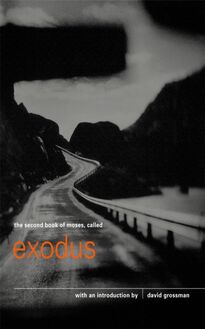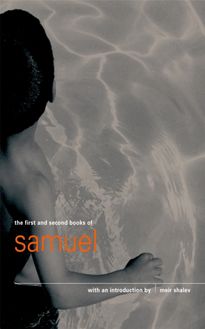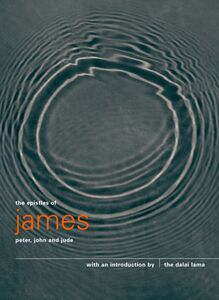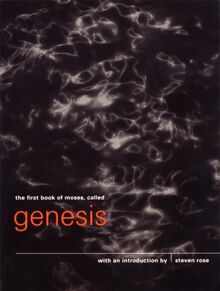Book of the Prophet Isaiah , livre ebook
141
pages
English
Ebooks
1999
Vous pourrez modifier la taille du texte de cet ouvrage
Obtenez un accès à la bibliothèque pour le consulter en ligne En savoir plus
Découvre YouScribe et accède à tout notre catalogue !
Découvre YouScribe et accède à tout notre catalogue !
141
pages
English
Ebooks
1999
Vous pourrez modifier la taille du texte de cet ouvrage
Obtenez un accès à la bibliothèque pour le consulter en ligne En savoir plus
Publié par
Date de parution
01 janvier 1999
Nombre de lectures
2
EAN13
9780857861047
Langue
English
Contents
Title Page a note about pocket canons introduction by peter ackroyd the book of the prophet isaiah 1 2 3 4 5 6 7 8 9 10 11 12 13 14 15 16 17 18 19 20 21 22 23 24 25 26 27 28 29 30 31 32 33 34 35 36 37 38 39 40 41 42 43 44 45 46 47 48 49 50 51 52 53 54 55 56 57 58 59 60 61 62 63 64 65 66 Copyright
a note about pocket canons
The Authorised King James Version of the Bible, translated between 1603–11, coincided with an extraordinary flowering of English literature. This version, more than any other, and possibly more than any other work in history, has had an influence in shaping the language we speak and write today.
Twenty-four of the eighty original books of the King James Bible are brought to you in this series. They encompass categories as diverse as history, philosophy, law, poetry and fiction. Each Pocket Canon also has its own introduction, specially commissioned from an impressive range of writers, to provide a personal interpretation of the text and explore its contemporary relevance.
introduction by peter ackroyd
Peter Ackroyd ’ s most recent books include bestselling biographies of Dickens (1990) , Blake ( 1995 ) and Thomas More (1998), and the novels Dan Leno and the Limehouse Golem (1994) and Milton in America (1996). He is the winner of a Somerset Maugham Award, the Guardian Fiction Prize, the Whitbread Prize for Biography and the prestigious James Tait Black Memorial Prize. He lives in London.
We must approach this sacred text with great respect, doubting the ability of our mind to comprehend it and of our tongue to describe it. The book of Isaiah is not the work of one writer or one prophet but, like the Homeric epics, incorporates the voices of many authors in a tradition of oral poetry. Yet even though it comprises various sources its shape, like a river made out of many streams, is fluent and harmonious. Within its 66 chapters passages of lyrical melody are pressed up against words of prophetic force, moments of vision vouchsafed beside occasions for denunciation; the narrative combines stories, poems, descriptions, revelations and lamentations. It is, in little, representative of the Bible itself.
The origins of the various texts, original or interpolated, date variously from the eighth to the sixth century BCE. Yet in a book where history and poetry mingle, for devotional or ritual purposes, there is no need to attempt to locate a substratum of real or observable fact; just as the original documents have long since crumbled to dust, so we cannot sift the episodes concerning forgotten battles and distant kings.
The composition of the book itself is more certain – chapters 1 to 39 are the work of several authors, but all moving within a realm concerning prophecies of redemption as well as fierce polemic against pagan idolaters and the profligate among the Lord’s own people. The 40th chapter marks the beginning of the work of the ‘Deutero-Isaiah’, perhaps the single most eloquent and inspiring of all the biblical writers who within 15 verses offers a vision of hope and of redemption for the people of Israel at the same time as, in a magnificent panegyric, he launches an attack upon Babylon and all the powers of this world. The third part, verses 55 to 66, acts as a coda to the first two sections, where interpolated hands have provided passages of prophecy and eschatology.
Harmony itself is achieved through the introduction of very clear formal preoccupations, together with an abiding and overriding concern for rhetorical elaboration and amplitude. Scholars of the Hebrew text, for example, have enumerated instances of alliteration and onomatopoeia designed expressly to lift a cadence or emphasise a phrase. The construction of the phrase itself is of the utmost significance, where simplicity and force work together in unison. That is why some of the lines from Isaiah have entered folk memory beyond the tribes of Israel – ‘and they shall beat their swords into plowshares (2:4) … For unto us a child is born, unto us a son is given (9:6) … The wolf also shall dwell with the lamb, and the leopard shall lie down with the kid (11:6) … How art thou fallen from heaven, O Lucifer, son of the morning! (14:12) … Let us eat and drink; for tomorrow we shall die (22:13) … All flesh is grass (40:6) … There is no peace, saith my God, to the wicked’ (57:21) … No rest for the wicked. The provenance of some of these phrases is disputed as not springing from the lips of the ‘historical’ Isaiah, but their relevance and influence are not in dispute. These are words which have literally changed the consciousness of the world.
Yet they are important, too, in maintaining the urgency and relevance of a narrative which speaks to many nations concerning the central aspirations of humankind. That is also why the economy and brevity of Isaiah allow a single phrase to denote the passage of many years or the history of one city. The utter simplicity of the author’s voice emerges in passages of perfect pitch and power – ‘Then shalt thou call [upon the Lord] … and he shall say, “Here I am.” (58:9). Here I am. It is as if the whole world resounded with God’s voice, and we may recall here William Blake’s visionary conversation with Isaiah – ‘I saw no God nor heard any,’ the prophet informed the poet, ‘in a finite organical perception; but my senses discover’d the infinite in everything.’
This in fact is one of the glories of Isaiah , where the grandeur or ineffability of the ‘infinite’ is expressed in terms of a local landscape or a specific activity, so that ‘the burden of the valley of vision’ (22:1) can be carried by details of weaving or of threshing. Here the aspiration towards the infinite and the illimitable is combined with a very clear and articulate presentation of contemporary realities. Israel is ‘a lodge in a garden of cucumbers’ (1:8), and the Lord tells Isaiah to walk towards ‘the end of the conduit of the upper pool in the highway of the fuller’s field’ (7:3). The Lord shall tread down Moab ‘even as straw is trodden down for the dunghill’ (25:10) and will put forth his hands ‘as he that swimmeth spreadeth forth his hands to swim’ (25:11). Isaiah celebrates a universe in which the particulars of the social and natural world are revealed as tokens of spiritual activity, where world and spirit do indeed become one, like the swimmer, in a living pulse of energy – ‘for the earth shall be full of the knowledge of the Lord, as the waters cover the sea’ (11:9).
The economy of effect, together with the use of repetition, renders these sacred verses not unlike the texts of Anglo-Saxon poetry – or, indeed, the expression of any bardic people. The recitation may even have been accompanied by music, so that the whole narrative becomes a kind of performance in which the aspirations of both orator and audience alike are embodied. No one can ignore, either, the dramatic aspects of Isaiah where, for example, the anonymous author proclaims the fate of one unhappy man – ‘He is despised and rejected of men; a man of sorrows, and acquainted with grief’ (53:3). This has often been characterised as a prophecy of Christ’s passion, yet it is more appropriately and less anachronistically seen as a most dramatic and human revelation of the outcast. In that sense, like the rest of Isaiah , it becomes a story of universal significance rather than a sample of pre-Christian revelation.
There has been much discussion, in recent years, of the Bible as a literary rather than a sacred or historical text. Certainly the narrative devices are clear, with affiliations to western poetry and fiction. There is, for example, satire approaching an almost Swiftian vision of disgust at the flesh, in the description of the women of Zion ‘with stretched forth necks and wanton eyes, walking and mincing as they go, and making a tinkling with their feet’ (3:16), or in the depiction of the priests of Ephraim so drunk that ‘all tables are full of vomit and filthiness’ (28:8). But there are other forms of narrative in place here, as mysterious and as melodious as anything in epic poetry – ‘And the posts of the door moved at the voice of him that cried, and the house was filled with smoke’ (6:4). ‘And his heart was moved, and the heart of his people, as the trees of the wood are moved with the wind’ (7:2). ‘For the heavens shall vanish away like smoke, and the earth shall wax old like a garment’ (51:6).
Coleridge once remarked, of cadences like this, that the first chapter of Isaiah might be ‘reduced to complete hexameters … so true is it that wherever passion was, the language became a sort of metre’. In truth the words of Isaiah are neither prose nor poetry but, rather, a series of incandescent utterances which effortlessly find their true form. That is why the question of whether this is a poetic rather than a sacred text is redundant – there is no necessary distinction between the two since the highest poetry is always a manifestation of the sacred, while the most sacred insights will necessarily take on the vesture of poetry.
As such the effect of Isaiah upon European literature has been extensive and profound; its plangent combination of prophetic passages, with visionary epiphanies and lyrical enchantments, have affected the understanding of epic and pastoral as well as the nature of poetry itself. It stands out like a great melody, informing the future and irradiating the past.
the book of the prophet isaiah
1
The vision of Isaiah the son of Amoz,
which he saw concerning Judah and Jerusalem
in the days of Uzziah, Jotham, Ahaz,
and Hezekiah, kings of Judah.
2 Hear, O heavens, and give ear, O earth;
for the Lord hath spoken,
I have nourished and brought up children,
and they have rebelled against me.
3 The














